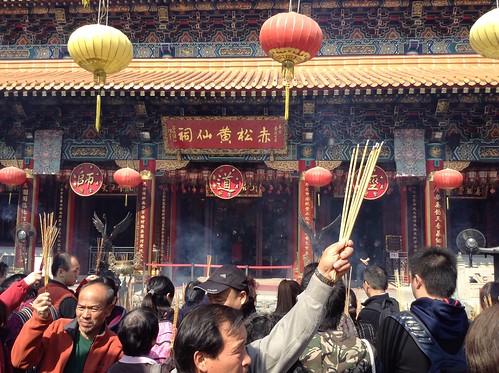At the beginning of the month, Dettol launched a ‘back to work’ poster campaign appeared on the tube as part of McCann London’s Keep Protecting series of adverts for Reckitt Benckiser.
The ad campaign had been launched in July with out of home posters like this one celebrating a return to school and video spots.
Here’s what Ads of the World had as an explanation of the ad’s rationale:
Lockdown has taught us all to appreciate the little things in life we previously took for granted. As we move out of the lockdown phase, we are all at risk of forgetting the importance and impact of the other little things we have been doing to keep ourselves, our families and our community safe. To remind us of these, Dettol has launched a fully integrated behaviour change campaign ‘Keep Protecting,’ comprising TV, VOD, digital and OOH.
Ads of the World^
Online conversations featuring Dettol went up 2245%*. In terms of sentiment**:
- 22% of posts were assessed to be negative in nature
- 11% of posts were assessed to be positive in nature
- 67% of posts were assessed to be neutral in nature
Was the Dettol campaign successful?
Was the campaign successful? It depends. At the moment we don’t know how Reckitt Benckiser were assessing the campaign, or what they wanted to achieve.
Reasons for thinking that it was:
- Dettol would have been top of mind with regards to hygiene thanks to the increased talkability
- The posters achieved reach far beyond tube travellers; which meant that the ads could be considered to be good value for money. I would presume that they already bought the posters at a considerable discount due to the overall surplus of inventory available in out of home advertising and diminished footfall
- Any negative impact is likely to be short lived. Discussion peaked on September 3rd, with 3,286 mentions, declined to 414 on September 4th and 96 the following day. Whilst PR experts claimed that Dettol would have a hard time cleaning up after this mess – the quantitative online data tends to suggest otherwise
- The (small) association of the Dettol ad with the government back to work campaign has potentially alligned Dettol’s personal care and household products to align more closely with the more socially conservative majority outside the big cities. And yet doesn’t seem to have impacted the appeal of the brand abroad in markets like India and Thailand
- Prior to the ‘back to work’ themed poster, the campaign didn’t seem to have spurred a significant increase in online social discussions at all. Despite the investment in out of home advertising and video. No increased discussion about product usage, or preparing for back to school. The Back To Work poster gave Dettol a brief burst of cultural relevance.
Reasons for thinking that it wasn’t:
- Dettol is already a by-word in the UK when it comes to antiseptic and disinfecting. It is already ‘verbing’ (as Faris Yakob would say) in UK culture. So there would be marginal gains
- As much as the posters drove talkability, they didn’t seem to drive content on Instagram. So for youth-obsessed brand marketers after millennial Mums and gen-y office workers, it was a bit of a wash out.
- Awareness and recall probably took a bit of a knock when 203 posts commented about how they thought the Dettol ad (with its prominent logo placement) was part of the UK government’s (currently postponed) back to work ad campaign. This connection has driven some of the media coverage that followed
- Dettol is likely to remain top of mind for only a short time. Discussion peaked on September 3rd, with 3,286 mentions, declined to 414 on September 4th and 96 the following day. TfL claim that the footfall at the tube is running at less than 30% of usual capacity at the moment
- The advert spawned memes that were negative to the brand and arguably more culturally relevant
- The media is likely to have a longer memory than the general public about the Dettol advert. It has placed the brand as a potential football in wider culture wars currently going on. Whilst the brand marketers and advertising agency won’t care, the communications team will likely to have clean up any mess coming to Reckitt Benckiser.
- The relative furore around the brand, looks bad compared to the results Dettol brand marketing teams have achieved across Asia. For instance Dettol India’s #HandWashChallenge got an astonishing amount of visibility on TikTok. It has achieved over 125.1 billion views across Asia****. More on that campaign here. And the Asian campaigns didn’t cause discord.
- Only 67 of the 3,870+ mentions associated the Dettol brand with hand sanitiser. Yet a key part of the ad artwork was a silhouette of their personal hand sanitiser bottle
The copy:
Hearing an alarm. Putting on a tie.
Carrying a handbag. Receptionists.
Caffeine-filled air. Taking a lift.
Seeing your second family. Watercooler
conversations. Proper bants. The boss’s
jokes. Plastic plants. Office gossip. Those
weird carpets. Face-to-face meetings.
Not having to make lunch. CCing.
BCCing. Accidentally replying-all.
Hearing buzzwords. Leaving early for
a cheeky afternoon in the sun.
Disinfect surfaces we use throughout the
day, so we can do it all again tomorrow.
The little things we do help protect the
little things we love. Keep Protecting.
McCann London for Rickett Benckiser
What about the craft?
My issues with the campaign are more craft-related. The call to action at the bottom made perfect sense when associated with the ‘back to school’ creative iteration of the poster. It makes less sense in the ‘back to work’ and ‘back to commute’ posters, where it has been used unchanged.
The language used in the ‘back to school’ poster would bring back emotive memories of school. The back to work poster evoked the ennui, awkwardness and embarrassing moments that Ricky Gervais skewered quite eloquently in the comedy TV show The Office.
There was also a clear comparison to Renton’s ‘Choose Life’ speech in Trainspotting 1 & 2
This could have been done so much better. It would still have been controversial – instead much of the abuse has come at the expense of its mediocrity. I suspect that the ad was an unintentional troll.
I am confident that this wasn’t a Dominic Cummings-type of deliberate trolling. It wasn’t designed to stir up brand relevance amongst the general public at the expense of the work-from-home metropolitan elites.
What next for Dettol?
The account planning team and client service staff members at McCann London will be wrapping together much of the reasons and data I’ve suggested above into a positive narrative for the client. If they manage to pull that off; they may even try to use it for award entries next year.
Dettol is a well-loved brand in a relatively low-passion category. Everyone I know has a bottle in the cupboard under the kitchen sink with the cleaning supplies or in the first aid kit. It deserved so much more from the marketers at Reckitt Benckiser (UK) and copywriters at McCann London.
More FMCG-related content here.
Notes and references.
^ VOD means video on demand like Netflix, Hulu in the US, NowTV in Hong Kong or ITV Player in the UK. OOH means out of home. Poster adverts that could be on billboards, electronic Jumbotron type signage, trains, buses or taxis. They can be inside like the London underground (mass transit) posters or out on the street.
*All data quoted from Meltwater Social. I looked at data only in English from the UK. The sources for mentions that I selected were: Twitter, forums, blogs, comments, Facebook, Instagram, Reddit and YouTube.
** Machine derived sentiment, so assume that it is only 65-85% accurate
*** The mini-peak on August 24th was Twitter users sharing a meme about childhood in 1970s Britain. It associated Dettol with a simpler, if more deprived Britain. The original tweet that got things going said:
I was moulded in the 70’s…when ya school jumper was knitted by an intoxicated grandma…when ya bath had Dettol not bubbles…ya phone was a pissy smelling red box..you was tucked in & couldn’t move….fish finger sandwiches & lard fried chips & I’d go back in a heartbeat ❤️
Mark Norris on Twitter
**** TikTok like other social platforms have issues with regards engagement metrics.
UPDATE: September 15, 2020 – YouGov surveyed the British public on each of the concepts in the copy and you can understand from the results why it went over so badly. TL;DR – People really don’t like their alarm, they don’t miss the smell of the office or even eating out for lunch and your work colleagues definitely aren’t your second family (PDF)



